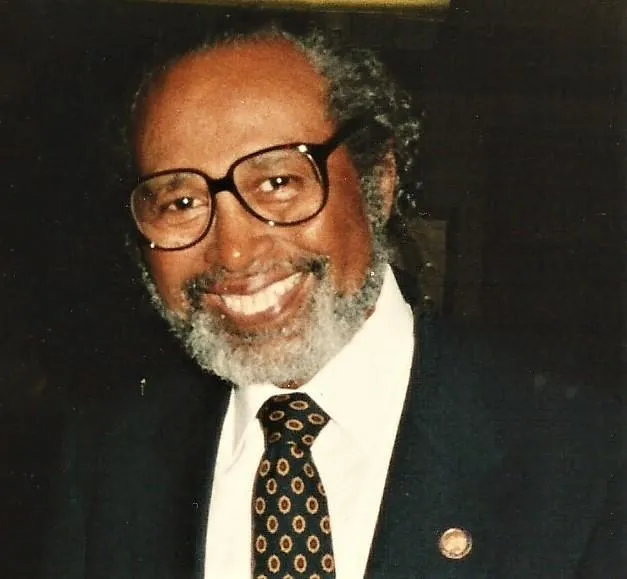'You are supposed to love your brother and sister. That’s the way it is with the union movement.'

EDITOR'S NOTE: This is our second story honoring distinguished Kentucky African American trade unionists as we recognize Black History Month.
By BERRY CRAIG
AFT Local 1360
W.C. Young of Paducah personified what Dr. Martin Luther King Jr. meant when he said that “the coalition that can have the greatest impact in the struggle for human dignity here in America is that of the Negro and the forces of labor, because their fortunes are so closely intertwined.”
Young was a nationally-recognized labor and civil rights leader.
He spent 46 years in the labor movement, which Dr. King praised as “the principal force that transformed misery and despair into hope and progress.” In 1968, Dr. King was assassinated in Memphis where he had gone to support striking AFSCME sanitation workers.
Young said civil rights leaders like Dr. King “have always known that with the labor movement they have a strong friend with clout.” Young died in his hometown in 1996 at age 77. He never went anywhere without his union card and his NAACP card in his wallet.
He joined the Brotherhood of Railway Clerks at the city’s old Illinois Central Railroad repair shops in 1941, served in the Army in World War II, and afterwards climbed the union ladder to the upper rungs.
In 1968, he became field director of the AFL-CIO Committee on Political Education’s Minority Department in Washington. Eleven years later, he was sent to Chicago to be director of COPE Region One, which encompassed seven Midwestern states. After a reorganization, he became head of Region 10, which included Kentucky, Ohio and Tennessee. He retired as Region 10 head in 1987.
Young's civil rights work was noticed in Washington and Frankfort. In 1961, he was named to a national panel that advised President John F. Kennedy on civil rights legislation.
Gov. Edward T. Breathitt hired Young as an aide to help with minority recruitment in state government.
Kennedy and Breathitt were Democrats; so was Young. He helped in many local, state, and national campaigns. At age 75, he was a field representative for the late Congressman Tom Barlow, D-Paducah.
In 1993, Young journeyed to South Africa, representing the AFL-CIO on a mission to find out what Americans could do to help Blacks long suffering under Apartheid. The trip preceded South Africa’s first free and open presidential election.
Like Dr. King, Young was guided by his Christian faith. Both were Baptists.
“I really believed what I was taught in Sunday school,” Young said. “You are supposed to love your brother and sister. That’s the way it is with the union movement.”
So it was in the civil rights movement, too.
Young lived a few steps away from Washington Street Baptist Church. He was baptized in the historic house of worship in 1937, the fateful year in which Paducah had its own version of the Biblical flood. Young ended up a deacon, trustee, moderator, Sunday school superintendent, and building committee chairman.
Young’s work on behalf of his church, organized labor, civil rights, and his hometown did not go unrecognized. He received many honors, including a 1989 award from the Louisville chapter of the A. Phillip Randolph Institute, a national organization that helps encourage minorities to vote and get involved in the political process. Like Young, Randolph was a labor and civil rights activist. Young served on the national board of the A. Philip Randolph Institute.
In addition, Young was posthumously inducted into the Kentucky Civil Rights Hall of Fame in 2003.
Paducah’s W.C. Young Community Center is named for him. Local labor remembers him, too. The highest honor the Paducah-based Western Kentucky AFL-CIO Area Council bestows is the W.C. Young Award. Young received the first award in 1994.
Thirty years before, Dr. King led the March on Frankfort. Young was among union members--Black and white--who were in the crowd.
Fifty years after the march, Kentucky State AFL-CIO Secretary-Treasurer Jeff Wiggins received the Young award. A plaque and photo of Wiggins, then the area council president, went up on a wall inside the council hall.
Similar photo-plaques honor other recipients, starting with Young. “Sometimes when I am working alone at the hall and feeling discouraged and want to quit and hang up my hat, I look at the faces of those people on the wall – my heroes -- and say to myself, ‘Dammit, they didn’t give up, and you’re not going to give up either,'” said Wiggins at his award presentation ceremony.